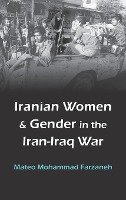Eighteen months after Iran's Islamic Revolution in 1979, hundreds of thousands of the country's women participated in the Iran-Iraq War (1980-88) in a variety of capacities. Iran was divided into women of conservative religious backgrounds who supported the revolution and accepted some of the theocratic regime's depictions of gender roles, and liberal women more active in civil society before the revolution who challenged the state's male-dominated gender bias. However, both groups were integral to the war effort, serving as journalists, paramedics, combatants, intelligence officers, medical instructors, and propagandists. Behind the frontlines, women were drivers, surgeons, fundraisers, and community organizers. The war provided women of all social classes the opportunity to assert their role in society, and in doing so, they refused to be marginalized. Despite their significant contributions, women are largely absent from studies on the war. Drawing upon primary sources such as memoirs, wills, interviews, print media coverage, and oral histories, Farzaneh chronicles in copious detail women's participation on the battlefield, in the household, and everywhere in between.

